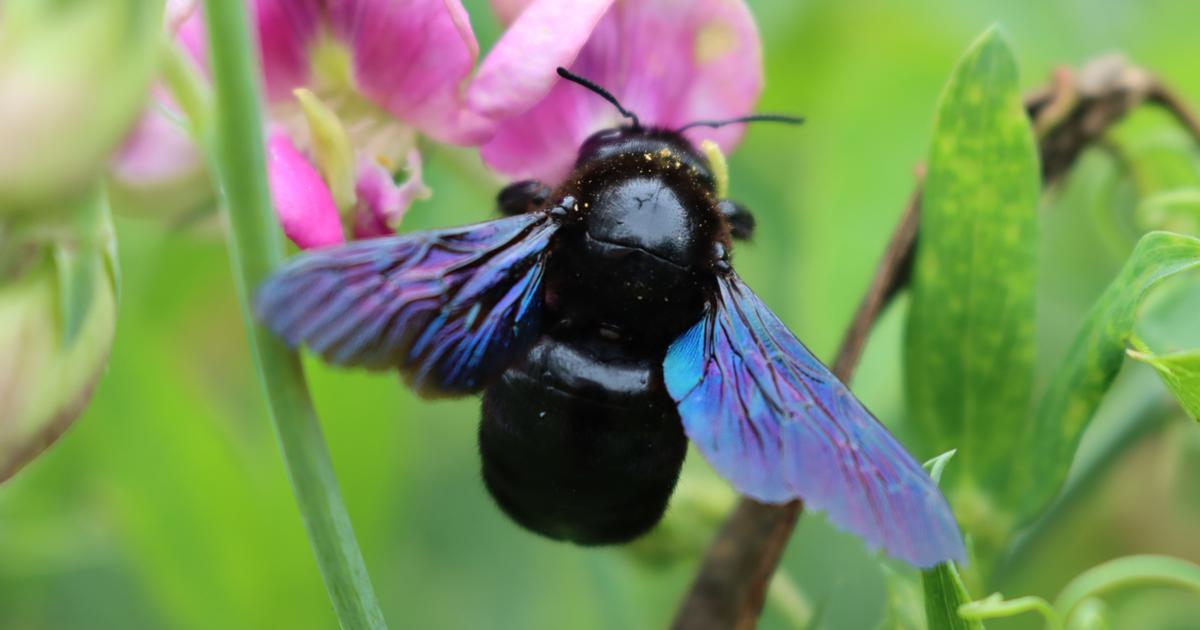Golden yellow do-gooder: Freisinger develop "Honicht" - without bees
Created: 02/24/2022, 10:00 am
By: Magdalena Hoecherl
Honey becomes honey: Nicole Seehon and Korbinian Wehle have created a dandelion blossom syrup - not only for people who live vegan.
© PRIVATE
Looks like honey and tastes like honey too.
However, the golden-yellow food was not produced by bees, but by two Freisingers.
Freising
– It all started with a souvenir: Nicole Seehon gave Nicole Seehon a glass of vegan honey from her friend Korbinian Wehle.
"I didn't know it at all, but I was really excited," recalls the 34-year-old.
In the spring of 2020, when the pandemic had the country firmly in its grip, the thought occurred to her: Why not produce a plant-based alternative yourself?
Namely on the basis of dandelion blossoms.
The result was "Honicht".
(By the way: everything from the region is now also available in our regular Freising newsletter.)
“Dandelion syrup is actually a very old recipe.
I thought to myself, something good could be made from this plant.” The idea won't let her go.
In August, Seehon and Wehle start experimenting – not an easy task.
“The taste of honey is unbeatable.
We wanted to imitate him as best we could.” Which types of flowers are best, how can the cooking process be optimised, which ingredients produce the tastiest result?
"Actually, we wanted to use fresh dandelion, but we can't do that on a larger scale," explains Nicole Seehon.
"But if you take too much dried, it tastes like hay."
Organic quality and made by hand
The two worked on the perfect recipe for a year and a half.
Finally, they find the optimal mix of dandelion, verbena, lemon and a few other natural flavors - all organic.
Korbinian Wehle cooks at his workplace, in the kitchen in the Alter Hof on Munich's Odeonsplatz.
“We do that at regular intervals, pop-up style.” The bottles are also bottled and labeled by hand.
The 225-gram jar is available online for 5.49 euros at honicht.de or in the boxes on the Wirschaffent creative platform at Bucher Pustet in Freising.
The feedback so far has been consistently positive.
Economy for the common good in focus
Nevertheless, the two do not intend to produce on a very large scale.
"It's easy to slip in and think, hey, we could make sales with that," admits Nicole Seehon.
However, the trained communication designer also emphasizes: “We don’t want that.
We don't want a brand that, on the one hand, brings positive benefits but, on the other hand, is looking for growth and the largest possible profit margin.”
Therefore, she has dealt intensively with the concept of the common good economy.
It is about the fulfillment of human needs, but not at any price.
The focus is not on the money, but on the added value for the end consumer as well as solidarity and ecological sustainability.
Not only suitable for people who eat vegan
"Honey is clearly not vegan, bees produce it," explains Nicole Seehon.
“Actually for themselves, to survive.” Of course, beekeepers would only take as much as is necessary for the animals to survive.
As a substitute, the bees are fed a syrup mixture.
"We turn it around: We take the syrup for ourselves and leave the honey to the bees." Nevertheless, the beekeepers should not miss out: Seehon and Wehle are already planning bee sponsorships in line with the common good economy.
This is how the beekeepers should be paid without having to take honey.
Basically, it is important to the people of Freising not only to address people who eat plant-based foods with "Honicht", but everyone.
"Anyone can try it," says Seehon.
“A customer said that she had been unable to eat honey for 30 years because of a pollen allergy.
'Honicht' is ideal for her.”
By the way: The product name came about by chance: "I was talking to my husband and didn't understand Ho instead of honey - that was obvious, of course."
More current news from the district of Freising can be found here.









